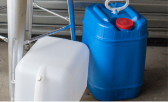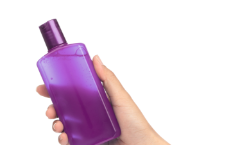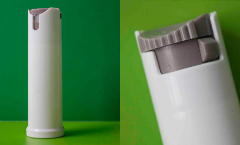Marijuana Laws by State in 2024: A Legal Weed Map and Short Guide to Regulation
Marijuana Legality by State: A Comprehensive Interactive Map
This map was last updated December 2023. Be sure to check the current laws within your municipality.

Where is marijuana legal in the U.S.? With every state but two legalizing marijuana in at least some form, this country is a little bit greener than a few years ago, but now, there are numerous different state laws on the legalization of recreational marijuana. Legal states like California and Colorado offer widely available dispensaries, while in places like Alabama and Georgia, which are technically medical marijuana states, possession still may lead to felonies.
Each state has its own weed laws. It’s … a little chaotic.
Because there are so many different laws, attitudes, and regulations on cannabis in the United States, we created a legal weed map to help people make sense of the multitude of regulations around what’s still federally, technically, a controlled substance.
How Many States Have Legalized Weed?
So far, there are 25 total recreational weed states, with three more states legalizing recreational cannabis for adults in 2023. Virginia, Minnesota, and Ohio are the latest states to legalize adult-use cannabis, although cannabis sales won’t start in these states until 2024 or 2025. As of now, 48 of the 50 states allow for some form of medical weed.
Every U.S. state except for Nebraska and Idaho has passed at least some legislation allowing legal medical cannabis use, though many are very, very restrictive.
For instance, low-THC CBD oil is the only legal form of non-medical cannabis in the following states: Alabama, Georgia, Indiana, Iowa, Kansas, North Carolina, South Carolina, Tennessee, Texas, Utah, Wisconsin, and Wyoming.
As of now, 31 out of the 50 states have undergone some decriminalization of weed under the law, whereas others still have very strict laws that resemble the federal norm.
Where Is Weed Legal in the U.S.?
When asking “How many states legalized weed?”, most people are referring to the recreational marijuana states. The states that have legalized marijuana are Alaska, Arizona, California, Colorado, Connecticut, Delaware, Illinois, Maine, Maryland, Massachusetts, Michigan, Minnesota, Missouri, Montana, Nevada, New Jersey, New Mexico, New York, Ohio, Oregon, Rhode Island, Vermont, Virginia, and Washington. It’s important to point out that even in states where pot is legal, there are several laws about how much you’re allowed to carry on you, keep in your house, and transport — obviously, driving while high is a bad idea. But there are important differences: Some states, like Vermont, allow growing in the home but it must be locked and not visible to the public, whereas others, like Washington, do not allow for home-growing of cannabis plants except for special circumstances.
A Guide to Marijuana Laws by State
As you can see from our weed map, U.S. marijuana laws can get a little tricky. Besides knowing what states have legalized weed, it’s important to also know some of the most important, nitty-gritty information, like how much you’re allowed to own, whether you can transport it, and who is allowed to partake.
We’re going to take a deep look at the weed laws of each state and go into much more detail than our marijuana map on which places can be dangerous or OK to smoke in.
Alabama






Marijuana possession for “personal use only” is a misdemeanor and can result in a prison sentence of up to a year and a maximum fine of $6,000. Anything other than possession for personal use can be considered a felony in Alabama, resulting in anywhere between a year and 10 years in prison and up to $15,000 in fines. Medical marijuana can be used for qualifying health conditions so long as conventional medical treatment or therapy has failed to treat it. Medical marijuana does not include cannabis flower or edibles, and can only be in the form of “tablets, capsules, tinctures, or gel cubes for oral use; gels, oils or creams for topical use, or suppositories, transdermal patches, nebulizers, or liquids or oils for use in an inhaler.”
Qualifying Health Conditions
• Autism Spectrum Disorder (ASD)
• Cancer-related cachexia, nausea or vomiting, weight loss, or chronic pain
• Crohn’s Disease
• Depression
• Epilepsy or a condition causing seizures
• HIV/AIDS-related nausea or weight loss
• Panic disorder
• Parkinson’s disease
• Persistent nausea that is not significantly responsive to traditional treatment, except for nausea related to pregnancy, cannabis-induced cyclical vomiting syndrome, or cannabinoid hyperemesis syndrome
• Post Traumatic Stress Disorder (PTSD)
• Sickle Cell Anemia
• Spasticity associated with a motor neuron disease, including Amyotrophic Lateral Sclerosis
• Spasticity associated with Multiple Sclerosis or a spinal cord injury
• Terminal illness
• Tourette’s Syndrome
• A condition causing chronic or intractable pain in which conventional therapeutic intervention and opiate therapy is contraindicated or has proved ineffective
Alaska







Alaska is one of the states with legal recreational pot, even allowing for dispensaries as of 2014. Adults 21 and older can possess up to an ounce of weed and six plants. In 2021 alone, the state collected $28.9 million in marijuana excise taxes. Here’s more info on the regulations.
Arizona







Is weed legal in Arizona? As of November 2020, recreational use of marijuana is legal for adults 21 or older. Adults can possess up to an ounce of weed or may cultivate up to six plants for personal use. Adults may also transfer up to six plants to another adult as long as there is no monetary exchange and the transfer is not advertised to the public.
Arkansas







Though there is an official Arkansas medical marijuana program, it’s considered to be one of the more restrictive in the country, according to the Marijuana Policy Project. There are very few legal places to purchase medical weed, though many people have official ID cards. Recreational possession in small amounts can lead to a year in jail and a fine of up to $2,500, and the ACLU has reported that enforcement disproportionately affects black Americans in Arkansas. Patients with qualifying health conditions may purchase up to 2.5 ounces of medical cannabis per 14-day period.
California







The first state to legalize medical use of weed in 1996 with the now-famous Proposition 215, California now has a rich history with the substance. In 2016, weed became legal for recreational use, too. Is weed legal in California today? Yes, and the state is home to marijuana cafés and hundreds of dispensaries. But of course, there are limits built into the California weed laws; for instance, you are limited to growing up to six plants, which must be licensed, you can only travel with 1 ounce (or 28 grams), and you can’t smoke in public. The state itself has lots of information and resources on the substance and how it’s regulated.
Colorado







While California was the first to legalize medical marijuana, Colorado and Washington were the first two states to legalize it for recreational use. Now, Colorado’s weed tourism brings them big bucks. There are limits to the Colorado marijuana laws: As with California, you can grow up to six licensed plants, you can carry up to 2 ounces, and you must not smoke in public. There are other important things to keep in mind if you plan on visiting, too: National parks are off limits, many counties have their own rules for when, where, and if you can smoke, and you should plan to have cash on you because many dispensaries can’t take credit cards.
Connecticut







Connecticut passed a law legalizing recreational marijuana in June 2021, allowing adults 21 and older to possess up to 1.5 ounces in public and up to 5 ounces of marijuana in their private residence. The law also permits adults to grow up to 6 marijuana plants, including 3 mature and 3 immature plants, in their residence beginning July, 1, 2023. The state of Connecticut collected nearly $5 million in excise tax revenue from the sale of marijuana in just the first half of 2023. The use of marijuana in public is strictly prohibited in Connecticut and remains subject to penalty.
Delaware







Delaware is one of the most recent states to pass legislation legalizing recreational marijuana for adults 21 and older. The state of Delaware legalized recreational marijuana in April 2023, allowing personal possession of up to one ounce of marijuana. Edible cannabis products must contain Delta-9 and not exceed 750 mg. Home cultivation of marijuana plants is not legal in Delaware though. The state will begin accepting businesses license applications by August 2024, and cultivation licenses by October 2024.
Florida







Is weed legal in Florida? By and large, the answer is no; possession of more than 20 grams can lead to a felony charge. Medical marijuana is legal for those with a qualifying condition. There had once been a ban on smoking medical weed; it has since been repealed but includes a limit of up to 2.5 ounces of marijuana in the form for smoking for a 35-day supply. It can still be difficult to get legal Florida marijuana, as you will need to have one of these qualifying conditions:
-
ALS
-
Cancer
-
Chronic nonmalignant pain
-
Crohn’s disease
-
Epilepsy
-
Glaucoma
-
HIV/AIDS
-
Multiple sclerosis (MS)
-
Parkinson’s disease
-
PTSD
-
Seizures
-
Terminal condition
Georgia






Georgia is one of the most restrictive states for weed, with more than 1 ounce in your possession potentially leading to a felony charge. HB 324 allowed for medical use of CBD oil only, with less than 5% THC content. While it’s decriminalized in some major cities, like Atlanta, approval overall is hard to get. Approval for low-THC oil is available to those with the following conditions:
-
AIDS
-
Alzheimer’s disease
-
Amyotrophic lateral sclerosis
-
Autism
-
Cancer
-
Crohn’s disease
-
Hospice care patients
-
Intractable pain
-
Mitochondrial disease
-
Multiple sclerosis
-
Parkinson’s disease
-
Post-traumatic stress syndrome
-
Severe or end-stage peripheral neuropathy
-
Seizure disorder
-
Sickle cell disease
-
Tourette’s syndrome
Penalties for possession have been reduced in Atlanta, Savannah, Clarkston, South Fulton, Fulton County, Forest Park, Kingsland, and Macon-Bibb County.
Hawaii







Weed in Hawaii is approved only for medical use, with only 4 ounces of usable marijuana allowed at a given time and no more than seven plants. Possession in Hawaii has been decriminalized; only very large amounts, one pound or more, can bring a felony charge. Marijuana is available for medical use with a prescription when you have one of the following:
-
Amyotrophic lateral sclerosis (ALS)
-
Cachexia
-
Cancer
-
Chronic pain
-
Crohn’s disease
-
Epilepsy
-
Glaucoma
-
HIV or AIDS
-
Lupus
-
Multiple sclerosis
-
Nausea
-
Persistent muscle spasms
-
Post traumatic stress
-
Rheumatoid arthritis
-
Seizures
There is also room in the law for the state department of health to approve specific cases.
Idaho




Marijuana is not legal in any fashion in the state of Idaho, and possession of more than 3 ounces is a felony.
Illinois







As of Jan. 1, 2020, recreational marijuana legalization took effect in Illinois. Users 21 or older are legally able to posses up to 30 grams of raw cannabis or 5 grams of concentrated cannabis. Those with a medical cannabis prescription are allowed to grow up to 5 plants. You can find answers to commonly asked questions about Illinois’s cannabis legalization law here.
Indiana






As of now, Indiana allows CBD oil with less than 0.3% THC. Medical CBD is allowed for those in Indiana with treatment-resistant epileptic conditions, including Dravet syndrome and Lennox-Gastaut syndrome.
Iowa






Weed is not legal in Iowa and the state has one of the most severe penalties for first-offenses in the country. A first-offense possession of even just one marijuana joint can be punishable by up to six months in jail and a thousand-dollar fine. Iowa allows medical use of cannabis oil products with a total of 4.5 grams of THC every 90 days for those with the following conditions:
-
AIDS/HIV
-
Amyotrophic lateral sclerosis (ALS)
-
Autism (with self-injurous or aggressive behavior)
-
Cancer
-
Cancer-related chronic pain, nausea, or cachexia
-
Chronic pain
-
Crohn’s disease
-
Multiple sclerosis
-
Parkinson’s disease
-
Post-traumatic stress disorder (PTSD)
-
Intractable epilepsy
-
Terminal illness
-
Ulcerative colitis
-
Chronic pain
Kansas






In 2018, Kansas passed a law allowing CBD products with 0% THC, one of the most restrictive medical marijuana laws in the country. But there’s a problem; most oils contain at least traces of THC. Fundamentally, it’s still illegal.
Kentucky






Kentucky signed medical marijuana legislation into law in March 2023, although the law doesn’t go into effect until the beginning of 2025. Kentucky’s legislation does not allow for raw cannabis to be smoked, but it can be consumed through vaporization. The legislation set a cap of 35% THC for raw cannabis, 10 mg THC for edibles, and concentrates are capped at 70% THC. The qualifying health conditions for medical marijuana in Kentucky includes:
-
cancer
-
chronic severe, intractable, or debilitating pain
-
epilepsy or any other intractable seizure disorder
-
multiple sclerosis, muscle spasms, or spasticity
-
chronic nausea or cyclical vomiting
-
post-traumatic stress disorder
-
other medical condition or disease for which medical cannabis is deemed appropriate
Louisiana






Louisiana has a medical marijuana program that’s not very functional, with only two state-licensed cultivators, Louisiana State University and Southern University, and has only authorized 10 locations to dispense medical cannabis with satellite locations coming in later 2023/2024. The state’s medical programs only offers a 30-day supply of non-smokable marijuana to those with one of these qualifying conditions:
-
Autism spectrum disorders
-
Cachexia/wasting syndrome
-
Cancer
-
Crohn’s disease
-
Epilepsy
-
Glaucoma
-
HIV/AIDS
-
Intractable pain (defined as “pain so chronic or severe as to otherwise warrant an opiate prescription”)
-
Muscular dystrophy
-
Multiple sclerosis
-
Parkinson’s disease
-
Post-traumatic stress disorder
-
Seizure disorders/spasticity
-
Severe muscle spasms
-
Other debilitating conditions
Maine







Is weed legal in Maine? Yes, it’s one of the cannabis-legal states approved for both recreational and medical use. Locals can carry up to 2.5 ounces (or 71 grams) on them and 5 grams of concentrate. They can also cultivate up to three flowering plants or 12 immature plants. Adults may only consume marijuana on private property in Maine, public use is a civil infraction punishable by a fine.
Maryland







Maryland became the 20th state to legalize recreational cannabis in November 2022. Once legalization went into effect on July 1, 2023, adults 21 and older could legally possess up to 1.5 ounces, 12 grams of concentrated cannabis, and grow up to two plants per household. The state of Maryland recorded $87 million in cannabis sales just during the first month. Smoking cannabis in public is prohibited in Maryland and will result in a $50 fine for the first offense.
Massachusetts







Weed is fully legal in Massachusetts! Marijuana legalization started in 2016 with a vote, and the first sales began in 2018. Adults 21 and older in Massachusetts are allowed up to 1 ounce outside of the home and 10 ounces inside of the home. Each adult can grow up to six plants for a limit of 12 plants per household, but the plants cannot be visible from a public place.
Michigan







As of 2018, recreational weed usage is legal in the state of Michigan. Recreational dispensaries opened at the end of 2019 and sold $10 million worth of marijuana within just the first six weeks of opening. Locals are allowed 2.5 ounces outside of the home and up to 10 ounces inside of the home, with a limit of 12 plants per household. Note that some communities have opted out.
Minnesota







As of 2023, weed is legal in Minnesota! Recreational legalization was signed into law in May 2023 and legal possession and cultivation began just a few months later in August. Adults that are 21 and older can posses up to 2 ounces of cannabis, 8 grams of concentrate, and edibles with up to 800 mg of THC; and they can possess up to two pounds of cannabis at home! In addition to these higher-than-average limits, adults can also grow up to 8 plants. Apartment dwellers beware, though, as smoking marijuana and vaping are prohibited in multifamily housing in Minnesota. Legal sales of cannabis are expected to begin in early 2025.
Mississippi







Mississippi’s medical marijuana program began operating in 2023 after voters cast their ballot to enact the program back in 2020. Mississippi has also decriminalized possession of small amounts of pot (30 grams or less), making it punishable by a fine rather than jail time. Mississippi’s medical marijuana program will allow those with qualifying conditions to purchase up to 3.5 ounces of cannabis flower or 1 gram of cannabis concentrate per day, with a limit of no more than 3 ounces of cannabis flower per month. The cannabis flower is capped at 30% THC and concentrate is capped at 60% THC. The following conditions qualify under Mississippi’s new medical marijuana law:
-
Alzheimer’s disease
-
Amyotrophic Lateral Sclerosis
-
Autism
-
Cachexia
-
Cancer
-
Chronic pain (refractory)
-
Crohn’s disease
-
Diabetic/peripheral neuropathy
-
Dementia-realted agitation
-
Glaucoma
-
hepatitis
-
HIV/AIDS
-
Huntington’s disease
-
Muscular dystrophy
-
Nausea
-
Parkinson’s disease
-
Post-traumatic stress disorder
-
Seizures
-
Severe and persistent muscle spasms
-
Sickle cell disease
-
Pastic quadriplegia
-
Spinal cord disease
-
Ulcerative colitis
Missouri







The people of Missouri voted to legalize recreational marijuana in November 2022 and by February 2023, legal sales of cannabis to adults 21 and older had begun. Sales for adult-use and medical cannabis totaled more than $126 million the following month! Adults can legally posses up to 3 ounces of cannabis and grow up to 6 mature plants, 6 immature plants, and 6 plants no taller than 14 inches.
Montana







Montana voters legalized recreational marijuana for adults 21 and older in the November 2022 election, although opponents of legalization in the state have since attempted to repeal the new cannabis laws. Recreational cannabis first started being sold in Montana at the start of 2022 and by March 2023 the state reported taxes of more than $53 million from cannabis sales. Adults can possess up to 1 ounce of cannabis and grow up to 2 mature plants and/or 2 seedlings.
Nebraska




Marijuana is illegal for both medical and recreation use in Nebraska, but decriminalization has begun — possession of less than one pound is a misdemeanor rather than a felony. Advocates for medical cannabis are continuing the fight to add a medical cannabis initiative to the 2024 ballot for residents to vote on after facing various setbacks for the past several years.
Nevada







Is marijuana legal in Nevada? Yes, it’s fully legal both for recreational and medical use. Right now, you can go to any of the licensed retailers to buy recreational weed. Nevada allows adults 21 and older to posses one ounce of marijuana or 3.5 grams of concentrated cannabis; and grow up to 6 marijuana plants if they reside more than 25 miles from a marijuana retailer. Visitors should know that you can’t consume it in a public place or in a moving vehicle.
New Hampshire







Legislators in New Hampshire have been trying unsuccessfully to get a bill legalizing recreational cannabis to pass, but the state Governor has finally said he will sign a bill with certain features so legalization could be on the horizon for the state of New Hampshire. Medical marijuana is legal though, and those with a qualifying medical condition can possess up to two ounces. Those conditions include the following:
-
ALS
-
Alzheimer’s disease
-
Cachexia
-
Cancer
-
Chemotherapy-induced anorexia
-
Chronic pain
-
Chronic pancreatitis
-
Crohn’s disease
-
Ehlers-Danlos syndrome
-
Elevated intraocular pressure
-
Epilepsy
-
Glaucoma
-
Hepatitis C
-
HIV/AIDS
-
Lupus
-
Moderate to severe vomiting
-
Multiple sclerosis
-
Muscular dystrophy
-
Nausea
-
Parkinson’s disease
-
Persistent muscle spasms
-
Post-traumatic stress disorder
-
Seizures
-
Severe pain
-
Spinal cord injury or disease
-
Traumatic brain injury
-
Wasting syndrome
New Jersey







New Jersey voters passed Question 1 in November 2020, which calls for the state constitution to be amended to allow recreational marijuana for adults ages 21 and older. Legalization was stalled several times as legislators fine-tuned the laws surrounding recreational marijuana, and the adult-use cannabis market officially started sales in April 2022. Recreational consumers can purchase up to one ounce per transaction and possess up to 6 ounces, although it is a crime for them to cultivate any plants.
New Mexico







New Mexico legalized marijuana in 2021 with The Cannabis Regulation Act which went into effect on June 29, 2021. This law allows adults ages 21 and older to be able to purchase and possess up to 2 ounces of cannabis flower, 16 grams of extract from licensed retailers, and 800 mg infused edibles. Home-cultivation is also allowed with a limit of up to 6 mature plants for each adult. Retail sales of marijuana began in New Mexico in April 2022 and the state saw more than $300 million in recreational cannabis sales in the first year.
New York







New York’s Governor signed The Marijuana Regulation and Taxation Act (MRTA) into law on March 31, 2021, which legalized the use of recreational marijuana for adults ages 21+. This law allows for personal possession of up to 3 ounces of cannabis flower and/or up to 24 grams of concentrate. Cultivation of marijuana plants can start eighteen months after cannabis sales begin in the state, which is estimated to be around June 2024. Each adult can grow up to 6 plants (3 mature and 3 immature) with a limit of 12 plants per household (6 mature and 6 immature).
North Carolina






North Carolina is one of just several states to have not yet enacted a medical cannabis program. CBD oil with is the only form of legal weed in the state and intractable epilepsy is the only qualifying health condition it is allowed to be used for. That being said, the state has partially decriminalized possession of small amounts with 0.5 ounces or less penalized as a misdemeanor.
North Dakota






North Dakota has a medical marijuana program and has decriminalized possession of small amounts. The state’s medical marijuana program only allows patients with a debilitating medical condition or cancer to use cannabis with a combustible delivery method; all other patients can only use cannabis-infused tinctures, topical solutions, capsules, and patches. The following conditions have been approved for medical marijuana use:
-
Agitation from Alzheimer’s disease or related dementia
-
Amyotrophic lateral sclerosis (ALS)
-
Anorexia nervosa
-
Anxiety disorder
-
Autism spectrum disorder
-
Brain injury
-
Bulimia nervosa
-
Cachexia or Wasting syndrome
-
Cancer
-
Chronic or debilitating disease
-
Crohn’s disease
-
Ehlers-Danlos syndrome
-
Endometriosis
-
Epilepsy
-
Fibromyalgia
-
Glaucoma
-
Hepatitis C
-
HIV/AIDS
-
Interstitial cystitis
-
Intractable nausea
-
Neuropathy
-
Migraine
-
Multiple sclerosis
-
Post-traumatic stress disorder (PTSD)
-
Rheumatoid arthritis
-
Seizures
-
Severe and persistent muscle spasms
-
Severe debilitating pain
-
Spinal stenosis
-
Terminally ill patients admitted to hospice care
-
Tourette syndrome
Ohio







On November 7, 2023, Ohio became the 25th state to legalize recreational marijuana for adults when voters approved issue 2 on the ballot. The law took effect in December 2023 and adults 21 and older can now legally posses up to 2.5 ounces of cannabis, up to 15 grams of concentrate, and grow up to 6 plants with no more than 12 plants per household. Adult-use cannabis sales are expected to begin towards the end of 2024. You can find more information about the newest cannabis legalization laws in the nation in this summary.
Oklahoma







In 2018, the state legalized medical use of cannabis. It now has one of the largest programs in the nation, with more than 368,000 licenses issued and the program having generated more than $45 million between January and September of 2020. Legislators held a special election in March 2023 with the initiative to legalize, regulate, and tax cannabis for adults but low voter turnout led to it not being approved
Oregon







Weed is fully legal in Oregon, with the legalization measure taking effect in 2015 and recreational sales beginning in 2017. Marijuana sales in the state soared to more than $1 billion in 2020. Recreational users are limited to two ounces in public or eight ounces in the home and four plants per household.
Pennsylvania







Several cities have decriminalized possession of small amounts of pot, like Pittsburgh and Philadelphia, PA. Initially, medical cannabis could only be taken through pills, oils, ointments, tinctures, or liquids, but in 2018, vaporized herbal cannabis was approved for medical use. Medical marijuana is available for the following conditions:
-
ALS (Lou Gehrig’s disease)
-
Anxiety disorders
-
Autism
-
Cancer, including remission therapy
-
Chronic Hepatitis C
-
Crohn’s disease
-
Damage to the nervous tissue of the central nervous system (brain-spinal cord) with objective neurological indication of intractable spasticity and other associated neuropathies
-
Dyskinetic/spastic movement disorders
-
Epilepsy
-
Glaucoma
-
HIV/AIDS
-
Huntington’s disease
-
Inflammatory bowel disease
-
Intractable seizures
-
Multiple Sclerosis
-
Opioid dependency
-
Neurodegenerative disorders
-
Neuropathies
-
Parkinson’s disease
-
Post-traumatic stress disorder
-
Sickle cell anemia
-
Severe chronic or intractable pain
-
Terminal illness (defined as 12 months or fewer to live)
-
Tourette syndrome
-
Other conditions that are recommended by the advisory board and approved by the secretary
Rhode Island







Is weed legal in Rhode Island? Yes, as of May 25, 2022 recreational marijuana is legal for adults 21 and older in the state of Rhode Island. Adults can possess up to 1 ounce of cannabis outside of the home or up to 10 ounces inside the home, and can grow up to 6 plants (3 mature, 3 immature) as well.
South Carolina






Only CBD oil with less than 0.9% THC is allowed for medical use, and that is only specifically allowed for those with Dravet syndrome, Lennox-Gastaut syndrome, or refractory epilepsy. South Carolina’s Senate passed a medical cannabis bill in 2022 but the bill died when the House refused to debate it; fingers crossed that 2024 is when South Carolina finally approves a medical marijuana program.
South Dakota







While recreational cannabis is still illegal in South Dakota, medical marijuana can be legally used for patients with qualifying health conditions. Activists in the state will continue to fight for legalizing recreational cannabis in 2024, which will prove even more difficult as their opponents have filed a proposal to repeal South Dakota’s medical cannabis program in the new year.
Tennessee






CBD with less than 0.9% THC is technically available to those with certain conditions, like epilepsy, but the law does not offer the opportunity to buy the oil legally within the state. Some municipalities have pushed toward decriminalization, like Nashville and Memphis, but there is a long way to go as far as weed law reform, which is lagging behind other states.
Texas






Is weed legal in Texas? Definitely not, as only CBD oil with less than 1% THC is legal for medical use, and only for those with certain serious conditions. Texas is known to have one of the most restrictive medical marijuana programs in the country, the program currently covers the following conditions:
-
Autism
-
Amyotrophic lateral sclerosis
-
Cancer
-
Incurable neurodegenerative disorders
-
Intractable Epilepsy
-
Multiple sclerosis
-
Post-Traumatic Stress Disorder
-
Seizure disorders
-
Terminal cancer
Utah







There is a somewhat restrictive medical program for marijuana use, allowing use for those with the following conditions:
-
ALS
-
Alzheimer’s disease
-
Autism
-
Cachexia
-
Cancer
-
Chronic pain
-
Crohn’s disease
-
Debilitating muscle spasms
-
Debilitating seizures
-
Epilepsy
-
HIV
-
Hospice care
-
Multiple sclerosis (MS)
-
Persistent nausea (except nausea caused by pregnancy)
-
PTSD
-
Terminal illness
-
Ulcerative colitis
Patients can also petition a “compassionate use” board to qualify.
Vermont







Pot is legal in Vermont, with a limit of two mature plants and four immature plants within the home and possession of one ounce or less. Legal cannabis sales began in Vermont on October 1, 2022; adults 21 and older can now purchase up to one ounce of cannabis or 8,400 mg of THC in any other products.
Virginia







Virginia became the first southern state to legalize the personal use and possession of marijuana, with the law having gone into effect on July 1, 2021. “Adult sharing” of up to 1 ounce of marijuana products is permitted between adults ages 21+. Home-cultivation of up to 4 plants per household is allowed, but the law requires that no marijuana plant is visible to the public and each plant must be tagged with the grower’s information. Laws regulating the commercial production and retail sales of cannabis will not take effect in Virginia until the beginning of 2024.
Washington







Washington was one of the first two states (the other being Colorado) to fully legalize recreational weed. It’s been legal since 2012 and has brought in millions in taxes. Home growing remains illegal except for medical purposes. Adults age 21 and older can get up to one ounce of usable marijuana, 16 ounces of edibles in solid form, and 72 ounces in liquid form. at a time. It’s also illegal to consume publicly. Check out this visitor guide to recreational marijuana in Washington state.
West Virginia






West Virginia has a fairly robust medical cannabis program, which allows for prescriptions for the following conditions:
-
Amyotrophic lateral sclerosis
-
Cancer
-
Crohn’s disease
-
Epilepsy
-
HIV/AIDS
-
Huntington’s disease
-
Intractable seizures
-
Multiple sclerosis
-
Neuropathies
-
Parkinson’s disease
-
Post-traumatic stress disorder
-
Severe chronic or intractable pain
-
Sickle cell anemia
-
Spinal cord damage
-
Terminal illness
Medical marijuana patients can possess cannabis as infused pills, oils, topicals, liquids, or patches. It can also be in dry leaf or plant form or administered by vaporization or nebulization.
Wisconsin






As of now, CBD oil is the only available form of medical marijuana, although access has been expanded in recent years from treating just seizure-causing conditions to treating any medical condition that a physician recommends it for. The state of Wisconsin has not decriminalized marijuana, but some of the cities within the state have, including Green Bay and Madison.
Wyoming






While Wyoming technically allows the use of CBD oil to treat intractable epilepsy, it provides no means to access it inside the state legally. In 2018, rather than moving toward decriminalization, the legislature tried to increase marijuana penalties.
If you want to learn more about weed laws in your state or get involved locally, know that you have a lot of resources at your disposal. If you’re in a weed-legal state, you can find legal cannabis products near you with WeedMaps or consider becoming a supplier or producer with the National Cannabis Industry Association. If you’re in a weed-illegal state, you can do your part in pushing legislators toward common-sense medical marijuana laws with the National Organization for the Reform of Marijuana Laws (or NORML), the Drug Policy Alliance, or the Marijuana Policy Project. We hope our state-by-state guide and legal weed map has helped make a confusing topic a little bit more clear!





































